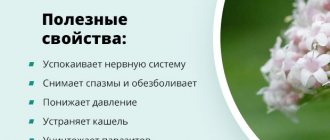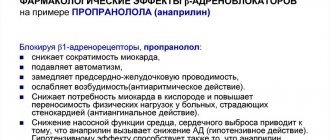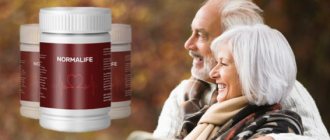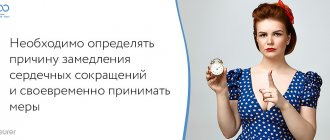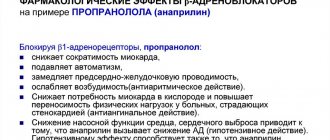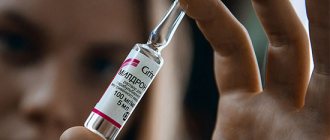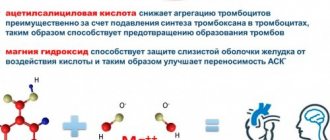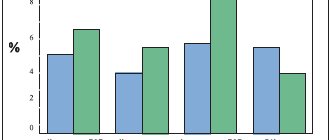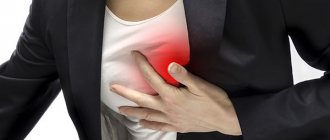Most childhood diseases are associated with a weak immune system. A lack of vitamins contributes to the development of colds and infectious diseases, which most often make themselves felt in the autumn-winter period. The use of medications does not always have a beneficial effect on the child’s body, and often only worsens the health situation. Prophylactic agents remain the most acceptable option for strengthening the immune system and preventing illnesses. Ascorutin will help children get rid of runny nose and sore throat, cleanse the body of toxins, protect against infections and improve the condition of blood vessels.
Mechanism of action
Ascorutin tablets are used in therapeutic practice as a combined vitamin-containing agent, which helps to establish redox processes and accelerate carbohydrate metabolism. In addition, the active components of the drug take part in the synthesis of hormones, regeneration and restoration of connective tissue.
Thanks to taking the drug, the effect of radiation on the body is reduced, toxins and other negative components are eliminated. With regular use, the fragility and permeability of capillaries decreases, and the walls of blood vessels become stronger. The medicine reduces inflammation and swelling of blood vessels in various pathologies.
Recent clinical studies have shown that Ascorutin is effective for cancer. It is known that cancer cells destroy vitamins and minerals entering the body. To prevent hypovitaminosis, Ascorutin is included in the complex therapy of pathology.
Important! The decision to prescribe medication is made solely by the doctor. Independent use of Ascorutin for the purpose of prevention is unacceptable.
What does it help with?
What is Ascorutin used for? Indications for use of the drug include the following conditions in patients:
- vascular diseases provoked by taking medications, for example, salicylates, indirect anticoagulants;
- prevention of hypovitaminosis and avitaminosis during the cold season and provoked by various diseases;
- therapy aimed at getting rid of deficiency of vitamin complexes;
- prevention of acute respiratory and viral diseases, bacterial infections among children and adults during the cold season;
- getting rid of residual symptoms of influenza, acute respiratory infections and acute respiratory viral infections.
Ascorutin is often prescribed to restore the integrity of blood vessels in case of varicose veins.
It is also recommended to use the drug for pathologies associated with insufficient functioning of blood vessels. Ascorutin is often prescribed for hemorrhoids, rosacea, and varicose veins of the lower extremities. In these conditions, tablets with rutin and ascorbic acid help reduce pain, strengthen the walls of blood vessels and capillaries, and restore their integrity.
What childhood diseases are treated with ascorutin?
Ascorutin is very effective in fighting infections. The poor condition of the vascular system greatly aggravates the course of diseases such as influenza, scarlet fever, tonsillitis and measles. The drug serves to strengthen the walls of blood vessels, eliminates their fragility, and improves permeability. It relieves skin rashes that often accompany infectious diseases.
With the help of ascorutin, it is possible to prevent and alleviate the course of childhood chronic glomerulonephritis. These diseases are expressed in the impact of infection on the kidneys, further tissue inflammation, swelling and loss of organ functionality. Glomerulonephritis is accompanied by accelerated loss of proteins, which entails weakening of the child’s body. Ascorutin takes an active part in returning the renal tubules and glomeruli to their functionality. During the treatment of glomerulonephritis in children over 3 years of age, the drug is often included in a complex of health procedures.
Ascorutin helps to effectively treat children suffering from hemorrhagic diathesis
Increased bleeding can be caused by capillary toxicosis (Henoch-Schönlein disease). Children aged 5–10 years are often susceptible to this disease. The pathology develops in the process of joining an allergic reaction to the vascular tissues to the infection. Due to excessive capillary permeability, the skin becomes covered with a characteristic rash. Hemorrhagic diathesis is also expressed by thrombocytopenic purpura (Werlhof's disease), in which blood clotting is impaired as a result of platelet deficiency. Ascorutin, which is involved in the complex treatment of hemorrhagic diathesis, strengthens blood vessels and reduces the activity of the enzyme hyaluronidase, which destroys intercellular tissue.
Ascorutin is used to treat nosebleeds in children.
Method of administration and dosage of the medicine
How to take Ascorutin? Each package of the medicine contains instructions for using Ascorutin tablets. Typically, the dosage for an adult patient is 3 tablets throughout the day, which are taken at equal intervals. The average duration of treatment is from two weeks to a month. The exact time of therapy and method of application are determined by the attending physician. The specialist takes into account the diagnosis and the individual characteristics of the patient. The tablets should be taken orally, without chewing, after meals.
Contraindications
There are relative and absolute contraindications to taking the medicine. The first group includes:
- increased blood clotting;
- tendency to form blood clots;
- diabetes;
- gout;
- kidney pathologies, including urolithiasis;
- age up to 3 years;
- the initial stages of bearing a child.
In the presence of the conditions described above, the doctor assesses how high the risk of developing negative consequences is and what is the ratio of benefit and harm to the body.
Absolute contraindications include hypersensitivity and the development of allergies to any component of the drug. An allergic reaction manifests itself in the form of rashes on the body, skin itching, and hives. Anaphylactic shock and Quincke's edema are less commonly diagnosed.
Side effects
The drug contains formations that the human body can synthesize independently. Therefore, during treatment with this medication, side effects are extremely rare. However, sometimes the clinical picture may be as follows:
- the appearance of periodic or constant headaches;
- decreased sleep quality, drowsiness;
- apathy, decreased ability to work;
- irritability, mood swings;
- reduction in the volume of cardiac muscle tissue;
- a sharp increase in heart rate;
- dyspeptic disorders - diarrhea, heartburn, flatulence, nausea.
Side effects may include nausea and headache
In addition to these conditions, the patient may experience vomiting, arterial hypertension, blood clots, itching, nervous overexcitation and some other symptoms.
Important! If the above-described manifestations are observed during therapy, you should refuse further treatment and immediately consult your doctor.
Side effects
Sometimes the drug can affect:
- Central nervous system. Long-term use of the drug is fraught with headaches, increased fatigue, tiredness, drowsiness during the day and insomnia at night. These undesirable manifestations are caused by ascorbic acid, they disappear after discontinuation of the drug.
- Gastrointestinal tract. The presence of vitamin C in tablets has an irritating effect on the inner layer of the stomach, which leads to spasms of the smooth muscles of the organ and, as a result, nausea, vomiting, pain, and heartburn. Diarrhea is possible.
- Endocrine system and metabolism. The diabetogenic effect inherent in vitamin C makes it undesirable to use the medicine if there is a lack of insulin. In some cases, it is possible to use Ascorutin in a minimal dosage with constant monitoring of glucose levels in the diabetic’s body. By causing disruptions in salt metabolism, the drug can lead to the formation of oxalate stones in the urinary system. In addition, it is also undesirable for gout. Tumors of a malignant nature, which are characterized by rapid growth, or metastases begin to progress faster when consuming Ascorutin due to the effect of vitamin C on their cellular metabolism.
- Cardiovascular system. Taking the drug in large quantities can cause arterial hypertension. With blood clots in the vessels, they may break off with subsequent adverse consequences.
Side effects of Ascorutin are very rare
The use of Ascorutin can lead to allergic reactions manifested by skin rash, urticaria (itchy blisters), Quincke's edema (causing swelling of the larynx, pharynx, trachea), as well as anaphylactic shock.
Interaction with other medications
The effectiveness of Ascorutin is enhanced when taken simultaneously with drugs containing penicillin and iron. The effect of the drug increases with the use of drugs with vitamin B. At the same time, the absorption of vitamin B also increases with the simultaneous use of Ascorutin.
Negative interactions are observed in combination with the following drugs:
- oral contraceptives;
- acetylsalicylic acid;
- indirect anticoagulants;
- heparin;
- aminoglycoside antibiotics;
- tetracycline;
- non-steroidal anti-inflammatory drugs;
- antihypertensive drugs;
- cardiac glycosides.
When Ascorutin is combined with the medications described above, there is a risk of developing various effects and worsening their action.
Use in pregnant women
In the first trimester of pregnancy, Ascorutin should not be taken. This is due to the fact that the active components of the drug are able to be absorbed into the blood, and therefore penetrate through the mother’s placenta to the fetus. In the early stages of pregnancy, namely in the first trimester, the formation of the central nervous system and internal organs of the fetus occurs. The use of even such harmless means as Ascorutin can negatively affect this process.
In the later stages, the medicine is prescribed exclusively by a doctor; it is strictly forbidden to use the drug on your own. An excess of ascorbic acid, as well as its deficiency, can have a very negative impact on the health of the mother and baby. Usually a specialist prescribes 3 tablets per day. It is recommended to take the medicine only with water. The course of therapy is selected by the leading doctor, taking into account the tests and general well-being of the expectant mother.
Composition and dosage form
Ascorutin contains 2 active components:
- rutoside (rutin, vitamin P): necessary for normal microcirculation of substances in cells, fluid outflow, strengthening and maintaining the elasticity of vascular walls;
- ascorbic acid (vitamin C): important for general metabolism, absorption and conversion of nutrients into energy, tissue trophism, maintaining immunity, synthesis of collagen and muscle fibers.
Ascorutin is produced in the form of tablets containing 50 mg. ascorbic acid and rutoside of natural origin. An extract from black currant berries is often used as a starting material, so the taste of the pills is pronounced, sweet and sour. Uncoated pills have a yellowish or light green color with small inclusions. Among the formative and additional components of the drug: sugar, starch, magnesium stearate, MCC and other compounds.
The drug Ascorutin D of a similar composition and form contains sorbitol instead of sugar and is safe for patients with diabetes.
Ascorutin for children
Ascorutin can be used among children over 3 years of age. The drug is prescribed to prevent influenza and other viral diseases. Among the indications for the medicine are nosebleeds, rheumatism, frequent colds, glomerulonephritis, hemorrhagic vasculitis. The method of administration and dosage does not differ from treatment in adults. The child is prescribed 3 tablets throughout the day at equal intervals. The course of therapy is 7-10 days.
Ascorutin is used among children under strict medical supervision
Reviews
Sergey Yuryevich Krylov, pediatrician (Kislovodsk) I consider Ascorutin a good medicine. It saturates the child’s body with essential vitamins, prevents many diseases and promotes a speedy recovery. I have been working with children for many years and I really want to give mothers advice: do not stuff your children with pills, even fortified ones. Provide your baby with a nutritious diet containing vitamins C and P, take him for walks more, stick to a routine, and then there will never be a need for medication.
Inna, 28 years old, housewife (Kiev) I have two children, 8 and 6 years old, who were constantly sick with viral and colds. Nothing in the summer, but with the onset of autumn, snot and cough were our constant companions. I only went to kindergarten for a week - and again I had sores. There was no question of me going back to work; I had to pick up the kids from preschool. I read on a women's forum that Ascorutin will help boost immunity. Currently, for the purpose of prevention, I give this medicine to children in the fall and spring. The pain stopped. One attends kindergarten, the other attends school.
Marina Vasilievna Vlasenko, 75 years old, pensioner. I have a 7-year-old grandson. Since birth, he suffered from nosebleeds and constant bruises, even for no apparent reason. The son and daughter-in-law examined the child completely; specialists did not reveal any diseases. The attending physician prescribed to give the child Ascorutin 1 tablet daily for a month. After completing the course of treatment, the grandson’s blood vessels have noticeably strengthened, and his nose is no longer bleeding.
Overdose
When the permissible daily dose of the drug increases, an overdose develops. This condition can occur as a result of failure to follow doctor's recommendations or self-treatment with medication. Within 40 to 50 minutes after consuming a large dose, the patient may develop the first symptoms of an overdose. These are the following manifestations:
- cramping or cutting pain in the stomach;
- nausea, vomiting;
- itching, urticaria;
- loose stools;
- heart rhythm disturbance;
- increased blood pressure;
- headache.
If a dose exceeding 3 g per day enters the body, there is a serious threat of kidney damage, the development of alkalosis and other complications.
Important! Overdose often occurs in children whose parents were careless to leave Ascorutin in a visible place. The tablets should be kept out of the reach of children.
Analogs
Below in the list are medications similar in composition, indications and therapeutic effects to Ascorutin:
- Esculex is a combined drug that ensures the establishment of blood circulation in the body and saturation of tissues with vitamins;
- Venarus is a venotonic that has a positive effect on blood vessels and capillaries. The product is used for hemorrhoids, varicose veins and other vascular pathologies;
- Profilaktin S – used for the prevention of influenza and colds, to restore the elasticity and integrity of blood vessels in various conditions in patients;
- Aescusan - contains horse chestnut extract, is prescribed to people with hemorrhoids, varicose veins in the legs, heaviness in the legs, to overcome pain after thrombophlebitis, injuries.
Analogs are prescribed to patients if for some reason a person cannot take Ascorutin.
Aescusan is an analogue of Ascorutin, used to restore the integrity and elasticity of blood vessels
Analogue of ascorutin for adults
One of the most effective analogues of ascorutin for adults is Detralex. The drug treats venous insufficiency, acute and chronic hemorrhoids. The product allows you to get rid of cramps and relieve pain in the lower extremities. It relieves swelling, accelerates the treatment of trophic disorders and varicose ulcers. Since Detralex does not pose a threat to the developing fetus, the drug can be prescribed to women during pregnancy. Its use is not recommended during lactation. In any case, Detralex should be taken only after consultation with a specialist.
Detralex - ascorutin for adults
Considering the numerous reviews about ascorutin, we can conclude that taking this drug is indeed very effective. Thanks to it, colds in children are reduced by 2-3 times, and there is also a noticeable effect on improving the health of children experiencing chronic bleeding. The unsatisfactory effect of the product is associated solely with neglect of the instructions for its use and the lack of prior consultation with a pediatrician.
Patient reviews
What do patient reviews say about the vitamin-containing drug Ascorutin?
Irina, Anapa “After giving birth, I encountered the problem of vascular fragility. I experienced bleeding gums and the appearance of bruises on my body at the slightest bruise. At first, the doctor prescribed me an expensive medicine that did not give the expected effect. After this, the doctor prescribed the cheap drug Ascorutin. Improvements came within 2 weeks, and I forgot about the problem with blood vessels once and for all. I recommend".
Anastasia, Volzhsk “I take this medicine to reduce blood viscosity, as I have a tendency to form blood clots. I take the drug once a year for 10 days. I’m very pleased with the result, I don’t observe any side effects or negative phenomena.”
Andrey, Zheleznogorsk “I suffer from hemorrhoids, so Ascorutin was prescribed to me as part of the complex treatment of the disease. I take tablets after meals three times a day. I heard that you can’t chew them, they say they have a negative effect on your teeth. I did not experience any side effects, the price and the results from using the product are quite satisfactory.”
How to use Ascorutin correctly
Tablets are recommended to be taken after or during meals. This way the vitamins are better absorbed and act faster. The drug should be taken with plain water. In the absence of contraindications - berry or fruit juices. It is not advisable to use alkaline mineral water, as it neutralizes the acids contained in the tablets.
Adults are recommended to take 200–600 mg. Ascorutin per day (2–6 tablets), depending on the type of pathology present. To prevent hypovitaminosis, it is enough to drink 1 piece. twice a day. For treatment - repeat the dose 3-4 times a day. The drug should be swallowed whole, without chewing, so that the acids do not harm tooth enamel.
Ascorutin is allowed for children from 4 years of age: 0.5–1 tablet per day. For babies, it is recommended to grind the product into powder or dilute it in 1 tsp. slightly warm water. After taking it, it is advisable to rinse your mouth thoroughly with water.
Recommended course of continuous intake of the vitamin complex: 2–4 weeks. If necessary, the doctor can prescribe a prolonged dose - up to 2 months, or a cyclic dose - up to six months. To avoid complications, you should not prolong taking Ascorutin or increase the dose yourself.


